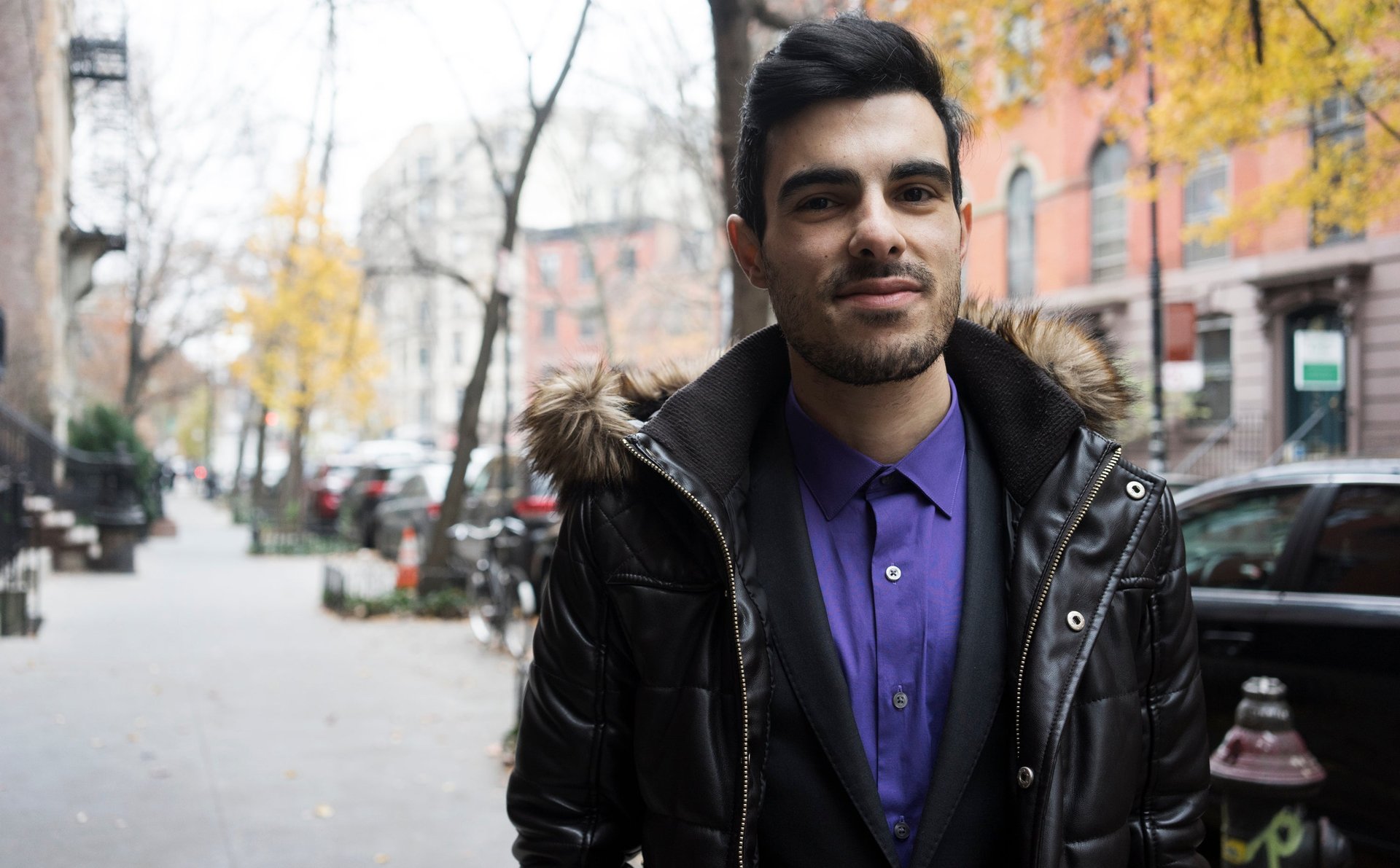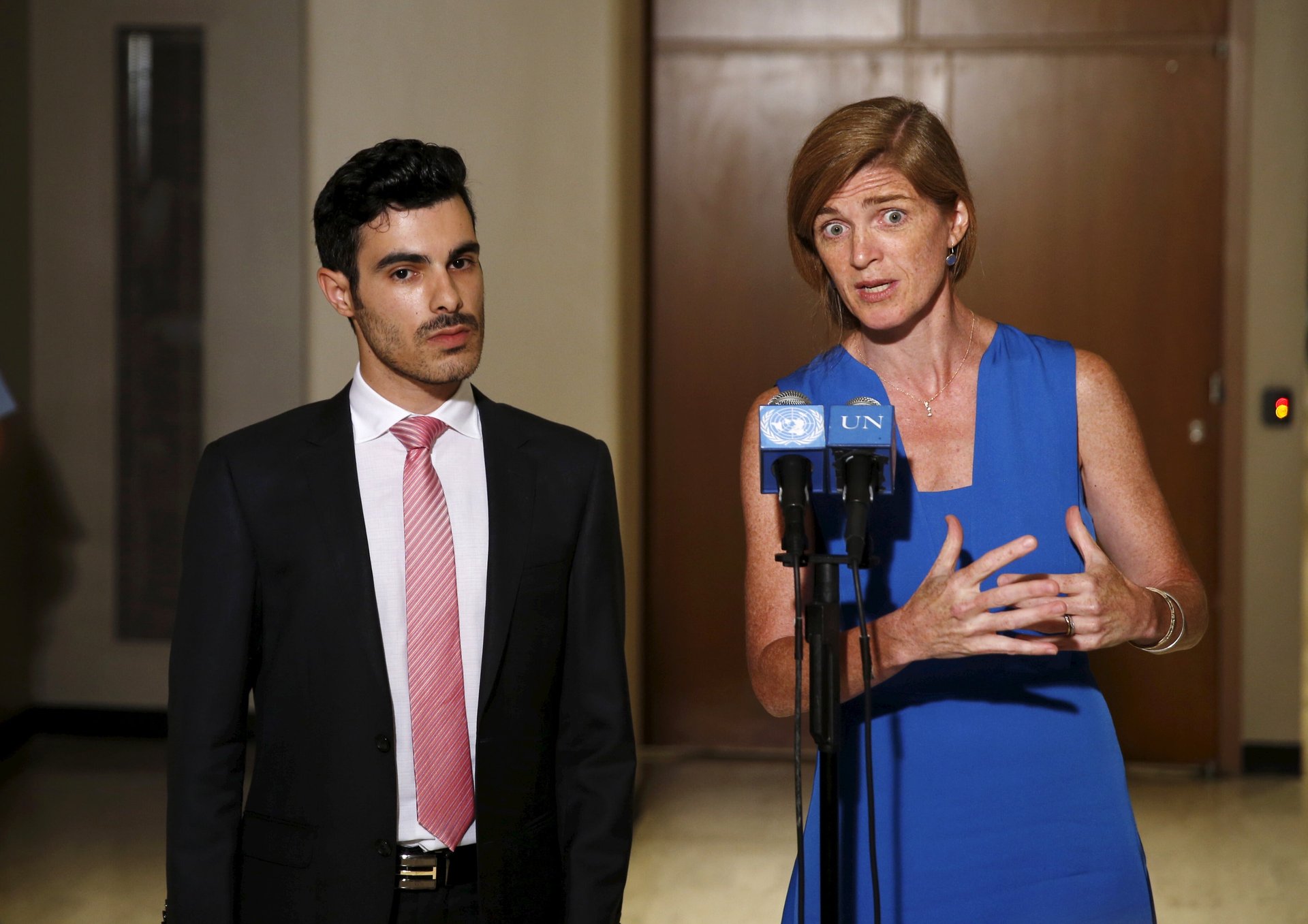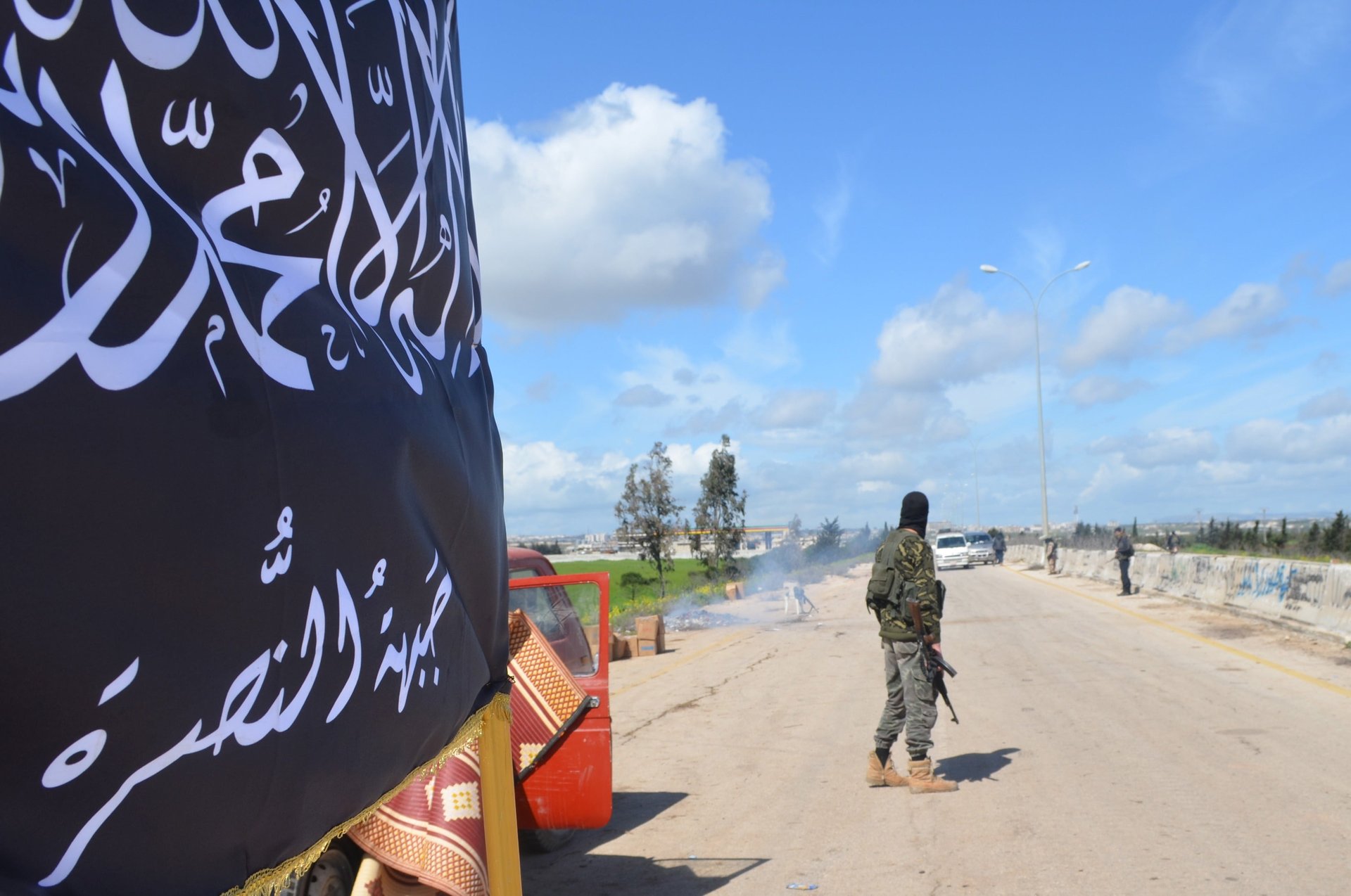A Syrian refugee’s journey to speak out for gay rights at the United Nations
Like four million other Syrians, Subhi Nahas fled his homeland in search of a better life. In June 2015, Nahas was resettled in the United States with the help of the United Nations. But unlike most other Syrians, he was not just fleeing war—he was also fleeing his own family.


Like four million other Syrians, Subhi Nahas fled his homeland in search of a better life. In June 2015, Nahas was resettled in the United States with the help of the United Nations. But unlike most other Syrians, he was not just fleeing war—he was also fleeing his own family.
“My father always had issues with my gender expression,” Nahas tells Quartz. “His eldest son being gay is pretty much the worst thing that could happen to him.”
On Aug. 24, the 29-year-old testified at the United Nations Security Council’s first summit on anti-LGBT violence by the Islamic State (ISIL). Shortly afterward, his family in Idlib, a city in Syria tightly controlled by al-Qaeda affiliate al-Nusra Front, released a statement accusing him of lying.
Nahas spoke to Quartz about growing up gay in a society where homophobia is the norm, and about his decision to leave Syria:
Growing up, I always experienced isolation—especially when I was young, and in high school. Kids did not want to be seen with me, even though, back then. They used to make comments about the way I talk and the way I dress. So they knew that there was something wrong with me.
When I turned 15, I became more isolated and depressed. I did not know anything; I didn’t have the resources to read about sexuality, therefore I didn’t know that I was gay. My family took me to a shrink, but he was, sadly, so homophobic. When I told him about my feelings, he freaked out. The next thing I knew, he picked up the phone and called my parents.
My family did not know how to deal with this, so they asked the doctor’s advice. He told them to take my phone, not let me go out alone, never close the door when I have a friend over. I kept telling my family that I didn’t act on it. I was fifteen; I didn’t even know what sexuality meant.

In 2011, when the revolution started, I was afraid that there would be no law anymore. You know, people, when they get power, they do crazy things, and people from my community are very conservative.
One time I was walking, and a guy, just a random guy with a gun, stopped me and started asking me why I was walking like that. Why I was dressed like this. I didn’t know how to answer him! I had lived my whole life like that, in that city.
I realized then that it was not safe for me to go out. I didn’t walk outside, took taxis everywhere, and never interacted with anyone. Then al-Nusra started to approach the city, and gained too much power. The people really loved them, I don’t know why.
Al-Nusra arrested a guy they saw watching pornographic videos on his mobile phone. They started this huge investigation and arrested all of his friends. I did not know what they did to him to get all of the names! They ended up arresting 25 of his friends.

Now some families in Syria are reporting their own sons and daughters to ISIL. And some kids are running away from their families. But they have no education and they can’t work. Many end up doing survival sex in exchange for money, across the border in Turkey. They have no sexual education—the only thing we know about HIV is the myth that you only get it if you have sex with more than one partner at the same time.
Luckily, I had friends in Lebanon who offered to help get me out of the country. They arranged everything and even paid for the taxi. This is how I left Syria.
Here, the only thing that I can do is to raise awareness. I started by talking to the United Nations and to the US ambassador to the UN, Samantha Power. Now we are trying to get the LGBT refugees out of there. We are also trying to get financial support to LGBT advocates in Turkey, Lebanon, and Jordan.
Many governments say we are not a priority at the moment. Others have said there are not enough LGBT people to be worth protecting.
I have been receiving messages from Americans asking me how they can help. I have no simple answer, and I dont want to mislead anybody. But everyone can raise awareness by talking about the issue and by telling everyone what’s going on, by telling everyone about LGBT people from that region: We are not just repressed by governments and regimes; we are also repressed by their families and their communities, and even by our peers.
Even when we get lucky enough to leave, we end up having nothing. So what I ask from the gay community here is to show their support to the people arriving in the US. Please help them.